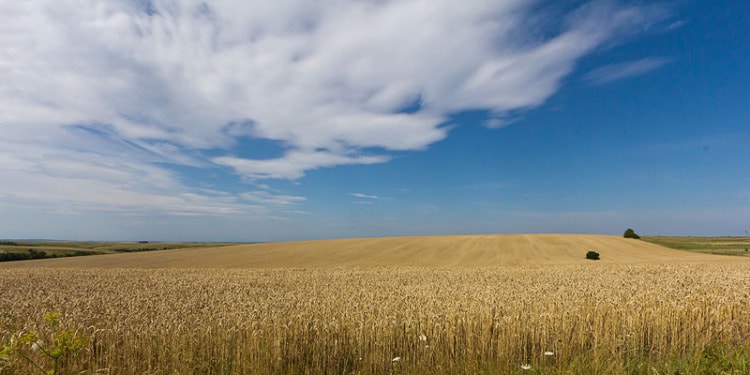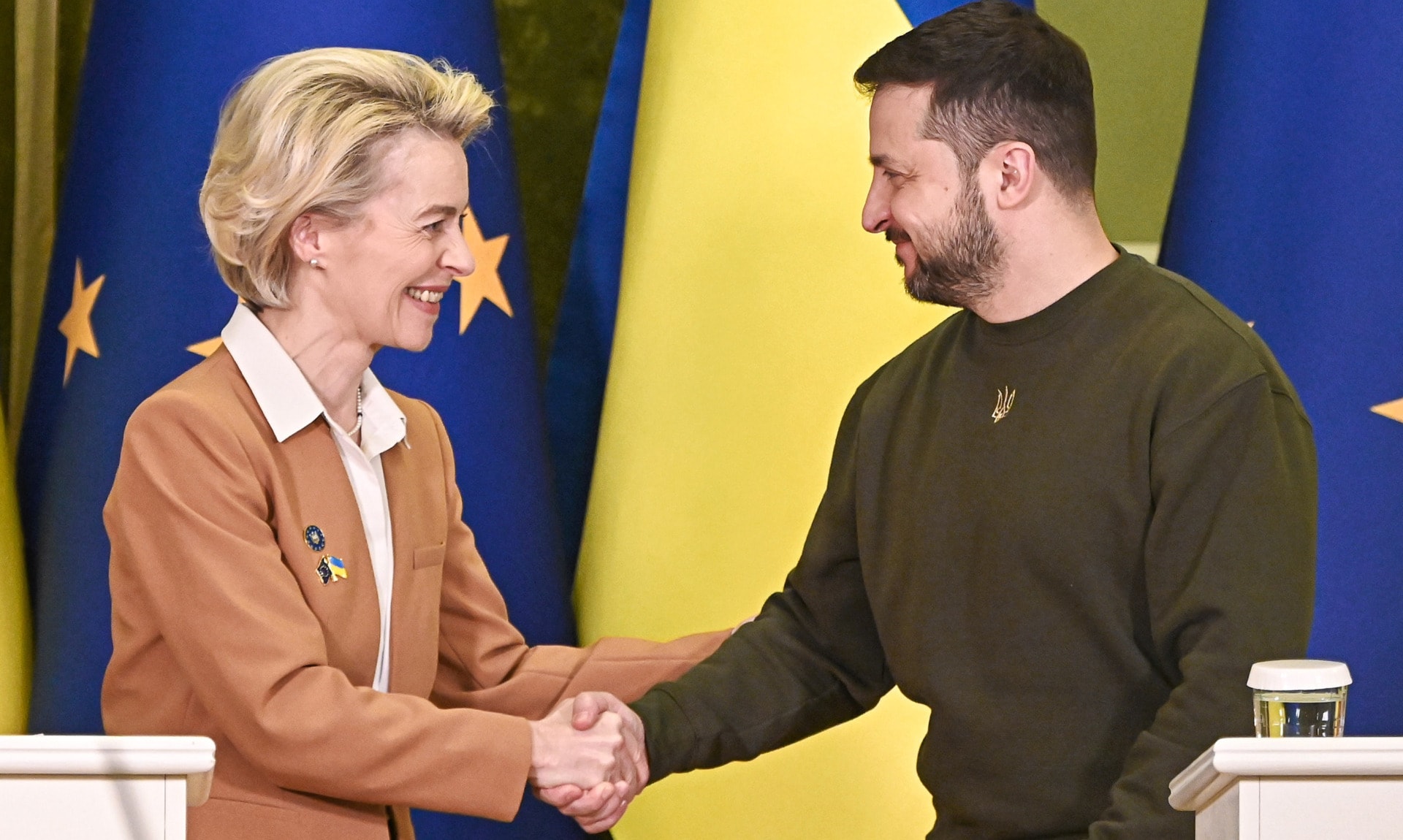The Kremlin says it will extend a deal that allows Ukraine to export grain from its ports in the Black Sea for another 60 days.
The announcement on March 17 came one day before the Black Sea Grain Deal was set to expire and has cast doubts over the grain deal’s fate. The deal is meant to automatically renew every 120 days as long as no parties object. Russia had previously expressed dissatisfaction with the deal, leading to concerns over if it would be renewed.
However, Turkey said negotiations to extend the deal for the originally agreed 120 days were still ongoing. Both the United Nations and Ukraine said the deal should be extended for the full amount originally agreed on.
For the first six months of Russia’s full-scale invasion of Ukraine in February 2022, Ukrainian ports had been blockaded by Russia. This meant that before the Black Sea grain initiative was agreed upon, Ukraine had struggled to export grain and other foodstuffs through the Black Sea.
This caused a massive reduction in Ukrainian grain exports and a significant increase in the price of foods, causing widespread concerns about food insecurity given Ukraine and Russia are two of the largest exporters of agricultural products in the world.
Turkey, Ukraine, Russia, and the United Nations reached an initial agreement on the Black Sea Grain Deal in July 2022, which also paved the way for Russian food and fertiliser to reach global markets, and it was extended for 120 days in November 2022.
The deal allows grain to be exported through a designated safe shipping corridor. There are also inspection procedures, all organised by a joint coordination centre in Istanbul which includes representatives from Ukraine, Russia, and Turkey.
Related Articles: What’s Going on With Ukraine’s Grain Exports? | How Russia Aims to Stop Moldova’s Pro-Western Path | World Still United to End the War in Ukraine
After the deal was made, food prices decreased and one of the world’s key food producers was able to export again. Since the deal, Ukraine has exported over 24 million metric tons of grain and food products to 45 countries, with the primary destinations of grain being China, Italy, Spain, Turkey and the Netherlands.
The World Food Program has also exported almost 500,000 metric tons of wheat from Ukrainian ports to Ethiopia, Yemen, Afghanistan and Somalia.
🇺🇦 #Ukraine has exported over 24 million metric tons of grain and food products to 45 countries through the Black Sea Grain Initiative since August 2022. Check out our latest animation of vessel movements across the globe.
Explore the data on #HDX: https://t.co/I3ut2j53Eb pic.twitter.com/Nb141hBLTf
— OCHA Centre for Humanitarian Data (@humdata) March 15, 2023
Outside of the Black Sea Grain Deal, Ukraine also attempted to increase exports over land as an alternative, however, this did not made up for reduced sea exports.
What’s more, the EU provided funding for EU-Ukraine Solidarity Lanes, an initiative which allowed Ukraine to export agricultural products by road and rail into the EU and via non-Ukrainian ports, helping restore both the Ukrainian economy and global food security.
While the Black Sea Grain Initiative has helped Ukraine increase exports, they are still far below pre-war levels. In January, Ukraine’s exports of grain for the 2022/2023 season were down by 30%.
Food prices also remain higher than before the war, leading to concerns about the vulnerability of the world to food insecurity.
On top of the difficulty of exporting, the war in Ukraine has made producing grain difficult, with farming made dangerous by mines. Ukraine has also accused Russia of stealing grain and exporting it for its own financial benefit.
At the start of the war, civilian ships in the Black Sea had been struck by missiles and bombs.
The UN has said, “the continuation of the Black Sea Grain Initiative is crucial for global food security.” The UN General Secretary António Guterres attributed reduced food costs and critical food relief to people around the world to the deal. He stressed the “critical importance” of it continuing.
Editor’s Note: The opinions expressed here by the authors are their own, not those of Impakter.com — In the Featured Photo: Wheat fields in Ukraine, 2012. Featured Photo Credit: Wikimedia Commons.













